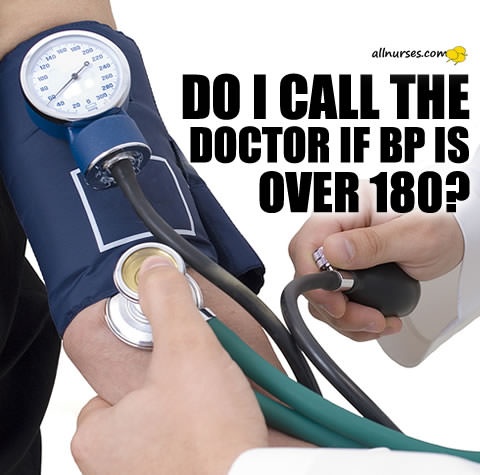- Community
-
Programs
- Schools
-
Careers
- RN Specialties
- Best RN Jobs and Salaries
- Aesthetic Nurse
- Nursing Informatics
- Nurse Case Manager
- NICU Nurse
- Forensic Nurse
- Labor and Delivery Nurse
- Psychiatric Nurse
- Pediatric Nurse
- Travel Nurse
- Telemetry Nurse
- Dermatology Nurse
- Nurse Practitioner
- Best NP Jobs and Salaries
- Family NP (FNP)
- Pediatric NP
- Neonatal NP
- Oncology NP
- Acute Care NP
- Aesthetic NP
- Women's Health NP
- Adult-Gerontology NP
- Orthopedic NP
- Emergency NP
- Psychiatric-Mental Health NP (PMHNP)
- APRN
- Nurse Educator
- Nurse Administrator
- Certified Nurse Midwife (CNM)
- Clinical Nurse Specialist (CNS)
- Certified Registered Nurse Anesthetist (CRNA)
- Resources
- Education


Hannahbanana, BSN, MSN
1,273 Posts
Under-rescuing— what a great concept. That’s what I was trying to describe, however poorly, in recommending that the nurse report any VS that’s out of normal range for this patient regardless of standing protocols. If something untoward were to happen and the prescriber had not been notified, a standing protocol to affirmatively notify if BP>X does not remove liability from failing to report one of X-5 if it’s a new development. Under-rescuing, I love it.
As to whether there’s an assumption that you are disturbing the prescriber or inappropriately communicating an expectation for treatment, that’s not your call either.
FWIW as an aside, high blood pressure often has no visible presenting signs or symptoms, as I learned early on when volunteering in a screening clinic. Apple-cheeked cute little granny sits down at my table and chatters brightly about her grandchildren and her BP was 280/140, confirmed on recheck. *I* almost had a stroke on that one.